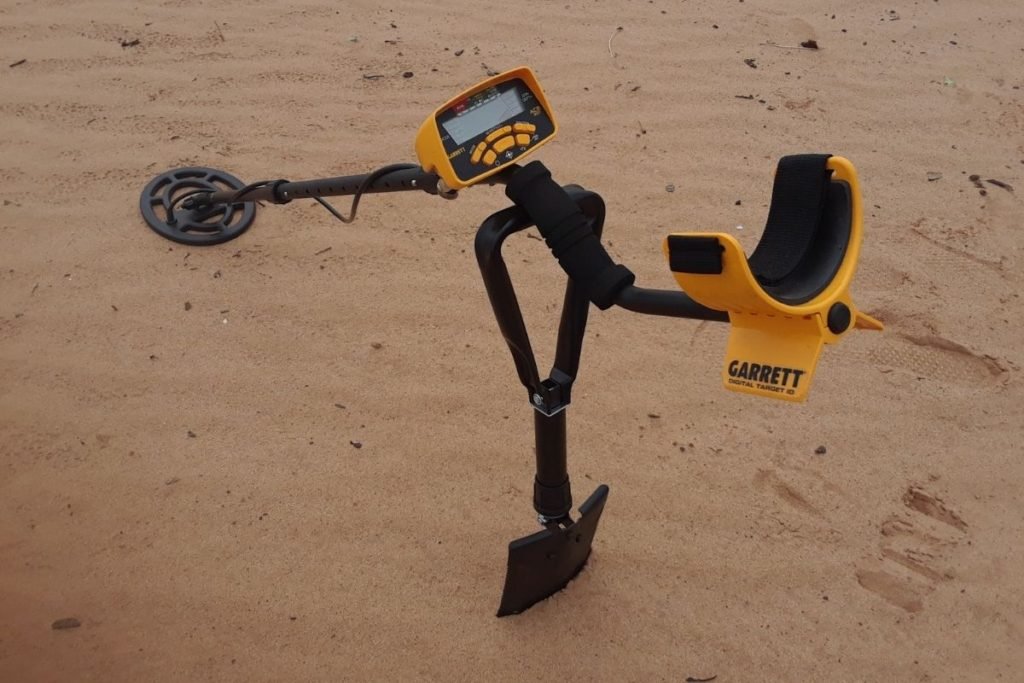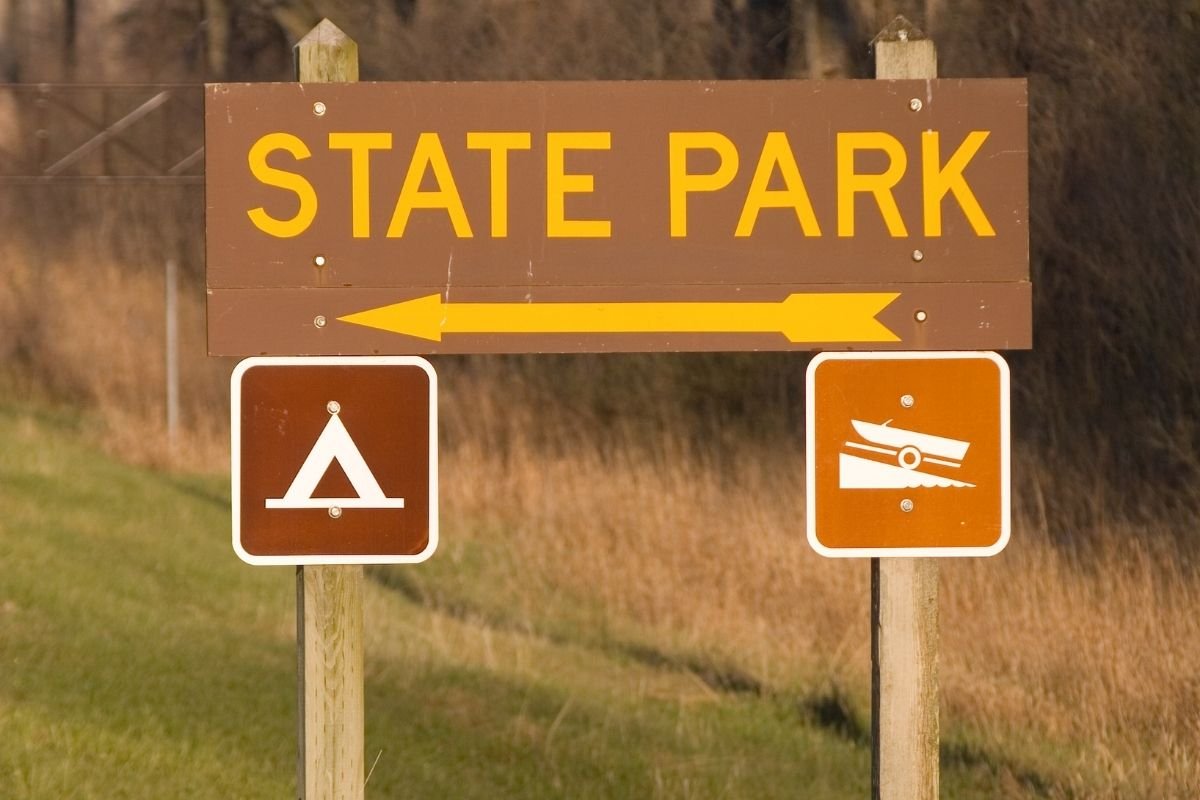With metal detectors, you can find various items that may or may not be of value. There are so many opportunities that are open to you when you go metal detecting. However, there can be limitations on where you can use your metal detector to find and collect items.
Certain states allow you to metal detect in state parks, such as Alaska, Arizona, Arkansas, California, Colorado, and Connecticut. You cannot use a metal detector when it is conflicting with a facility being used or when you are in a fenced-off, private area. Some state parks do not allow metal detecting without a permit.
Here are the ins and outs of metal detecting in state parks. Keep in mind, the rules may vary depending on the state you are in, as well as the park itself.
What Are The Metal Detecting Laws by State?
Depending on the state, the metal detecting laws can vary. Most states have their own set of rules, so, you may or may not need a permit as well. Some states only allow metal detecting on beaches, while some of them prohibit it altogether.
Before you make the trip, make sure that you check the laws. Here is a quick rundown on whether or not you can generally detect metal in these states on state parks.
You can metal detect in these states
While some of these states have relaxed laws about metal detecting in state parks, others may require you to present a permit or follow certain restrictions.
- Alaska, Arizona, Arkansas, California, Colorado, Connecticut, Delaware, Florida, Hawaii, Illinois, Iowa, Kansas, Maryland, Massachusetts, Michigan, Minnesota, Mississippi, Missouri, New Hampshire, New Jersey, New Mexico, New York, Ohio, Oklahoma, Oregon, Pennsylvania, Rhode Island, South Carolina, Texas, Utah, Vermont, Virginia, Washington.
You cannot metal detect in these states
In these states, metal detecting is prohibited in state parks. You may even be prohibited to even carry a metal detector on state park grounds.
- Alabama, Idaho, Indiana, Kentucky, Louisiana, Montana, Nevada, North Carolina, North Dakota, Tennessee, West Virginia, Wisconsin, Wyoming.
What Laws Prohibit Metal Detecting?
In the United States, metal detecting is prohibited by the fact that metal detecting is illegal in any federally operated area, as well as national parks. Most state parks are not federally or nationally sanctioned areas, so most of them are okay to metal detect on.
Some areas are not allowed, no matter what, even if you have a permit for metal detecting in other areas. If the state you are trying to metal detect follows federal or national standards, you will not be allowed to metal detect in that park.
Some cities will even have their own rules regarding metal detecting. If you find a place you’d like to go, it’s best to research their specific laws and regulations. Beaches also have an entirely different set of rules, where some beaches allow you to metal detect freely or with restriction and some do not.
When Can I Metal Detect in a State Park?
Depending on the area that you decide to go, to metal detect, they may have specific hours or regulations for times when you can metal detect. Some places allow you to metal detect freely at any time of the day. Other states, such as Iowa, have a specific season when you will be allowed to metal detect, as well as specific times when it is allowed. Source.
Other places will only allow you to metal detect during their regular hours of operation. Parks will have these hours and dates listed clearly if there are restrictions. If there is no mention of any hours when it is prohibited, and the state laws say it is allowed, you should stick to the rule for hours of operation.
Are you new to metal detecting? Consider getting a beginner-level metal detector! The first metal detector I ever purchased was the Garret Ace 300. You can get it here!

Can I Bring Home My Findings?
With metal detecting, the main goal is to find a treasure you can bring home. However, depending on where you are, this may not be realistic for you to do. Some state laws can be tricky when it comes to metal detector findings. In states such as Colorado, you can metal detect in some state parks, but you cannot dig up your findings if you have reason to believe it is part of an archeology site. Source.
In other states, such as California, it is okay to dig up findings. However, you must be cautious when digging because you are not allowed to ruin any vegetation in the process of digging up all of your findings, and you cannot dig up any area that may be of significance to archeology. These laws do vary, but rules will be stated very clearly on whether or not you can dig up the soil.
What to learn how to use a metal detector? See our article here.
Check out our article for Best Places to Metal Detect for Old Coins.
Do I Need a Permit to Metal Detect?
Some states do not require you to have a permit when metal detecting in their state parks, and some do. In most public areas, a permit is not needed, unless local laws state otherwise. Some states do not allow metal detecting for recreational purposes, even if you have a permit.
Some restrictions state that you can only metal detecting when looking for personal belongings. This may not require you to obtain a permit, however, you still will need to get permission. In areas where a permit is not needed, you may want to check if the area requires permission from the property owner to metal detect.
Private properties typically require you to have some form of permission or permit to metal detect on. This does not apply to places where metal detecting is strictly prohibited for recreational purposes.
Conclusion
When going metal detecting in a state park, you should always research the laws of the area before you decide to go. State and city laws vary individually, and some strictly prohibit the use of metal detectors for recreational use. However, if you are looking to go metal detecting in state parks, most will clearly state their laws for metal detector use.
As you normally would, exercise caution when metal detecting in protected areas, and make sure that you are being careful not to dig or extract from anywhere that is prohibited. In some of the state parks, these rules are very strict!

